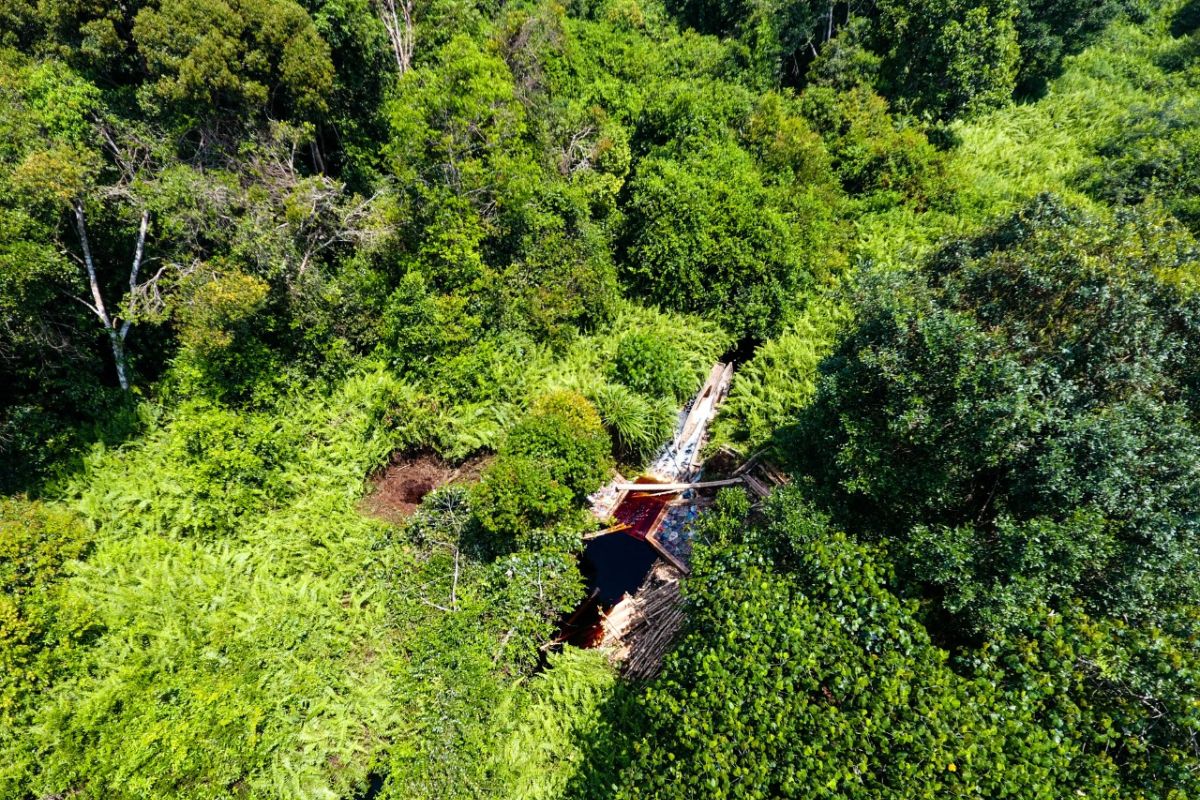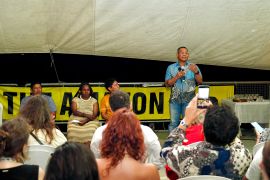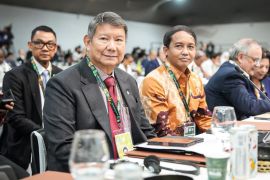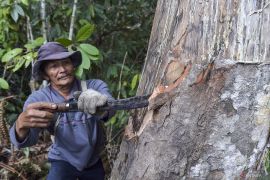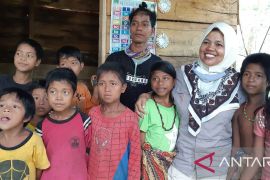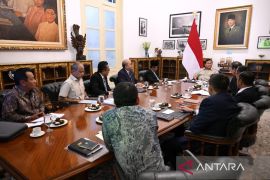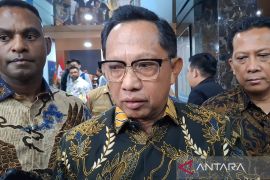Indigenous people, whose cultural wisdom promotes the preservation and balance of nature, became a victim of policies issued by the central and regional governments that displace them from the land that they own.Jambi (ANTARA) - The year 2021 draws to a close, with the world still plagued by the COVID-19 pandemic that has mutated to the Omicron variant deemed to have a far faster transmission rate than its predecessors.
However, in addition to the Omicron variant that was detected in Wisma Atlet, Jakarta, another case gripped the nation's attention last week of a land dispute that involves the indigenous population.
The indigenous people demanded the right over the territory that they owned and managed for generations from the regional government and entrepreneur, Indonesia Indigenous Law Educator Association (APHA) Head Laksanto Utomo noted.
Indonesia has adopted a plural stance in legal matters. The state has acknowledged three legal systems that remain in effect to this day: western law, religious law, and indigenous law.
Hence, several people still apply the indigenous law in their daily activities and to solve any existing issues.
Every region in Indonesia has its own indigenous law that regulates diverse groups of people, most of which are not written.
Anthropologist from Leiden University, the Netherlands, Van Vollehoven studied indigenous law in Indonesia. He died in 1933, some 12 years before Indonesia gained its independence.
Vollehoven is called the father of indigenous law, as his work remains influential in the creation of law.
He noted that the indigenous law is a rule that, while unwritten, dictates the behavior of people within a region, penalized anyone that violated it, and it is unmodified.
While it is unwritten, all international law experts agreed that the implementation of indigenous law should be acknowledged and protected by the state, including the land assets that they owned until now, Utomo affirmed.
"Hence, within the amended 1945 Constitution (post-reformation) Amien Rais, Ginandjar Kartasamita, Sucipto, and others deemed that it is important to add one special article on protecting indigenous people and their land because it can be seen that their existence is becoming more marginalized," he noted.
The article 18B paragraph (2) of the Constitution states "The state acknowledges and respects the unity of indigenous people and their traditional rights as long as they are still alive and align with the development of the people and principle of Republic of Indonesia stipulated within the law."
"This means that the state acknowledges and will protect the existence of indigenous law and their Constitutional rights within Indonesia's legal system," Utomo noted.
Before the reformation, the first president of Indonesia, Soekarno, had included the aspect of acknowledgement and protection of indigenous people in the formulation of Law No. 5 of 1960 on Agrarian Core Regulation.
Existence of the indigenous law cannot go against the nation's interest and other higher laws and regulations.
However, it should be underlined that the indigenous law and territorial land rights are protected by the Constitution and Agrarian Core Law.
Hence, Utomo emphasized that it is a Constitutional mandate to not marginalize those, who do not have the power to protect their rights.
Mandate should not be violated
Meanwhile, Yusuf, indigenous law educator said, acknowledge and protect indigenous people and their territory is a Constitutional mandate stipulated within article 18 B of the Constitution.
To this end, at the end of 2021 and the start of 2022, all central and regional government officials, the police, and the military should collectively protect indigenous people and their land ownership.
A recent land dispute case involved the land belonging to the Dayak Modang Long Wai indigenous people in Long Bentuk Village, East Kutai, East Kalimantan.
The indigenous people demanded the rights over the territory that was utilized by a palm oil company.
Utilization of the land was based on East Kutai District Head's Decision Letter in 2006 that granted right over 14,350 hectares to open a palm oil plantation over a land owned by indigenous people.
There was also a case of tourism exploitation that occurred at the Bromo Tengger Semeru National Park, East Java, that could potentially cause cultural erosion and have an ecological impact.
Similarly, this exploitation was incorporated in a "state law" of both the central and regional governments that did not align with the local social conditions of the indigenous people.
With instances of cases above to end 2021, indigenous law practitioners in Indonesia APHA expressed their concern over the territorial land dispute that Indonesian indigenous people experienced.
"Indigenous people, whose cultural wisdom promote the preservation and balance of nature, became a victim of policies issued by the central and regional government that displace them from the land that they own," Yusuf stated.
In order to preserve this, indigenous law educators fight to promote the Indigenous People Bill. Unfortunately, at the end of 2021, the ratification of the bill had yet to be realized.
"To this end, every party should protect and act on the mandate from the Constitution and other regulations, such as Presidential Regulation No. 7 of 2005 and No. 39 of 2005 on Indonesia's legal political system that should respect and strengthen local culture and the indigenous law," Yusuf affirmed.
Hopes are pinned high on the government, along with the House of Representatives (DPR), continuing to showcase a strong commitment in discussing and ratifying the Indigenous People Bill to become a law in 2022.
Related news: Vaccinations for indigenous, disabled people pose special challenges
Related news: Amin expects indigenous people to benefit from Papua's development
Related news: Indigenous people bind their soul to geographical spaces: AMAN
Translator: Nanang, Laksanto, Fadhli
Editor: Sri Haryati
Copyright © ANTARA 2021
